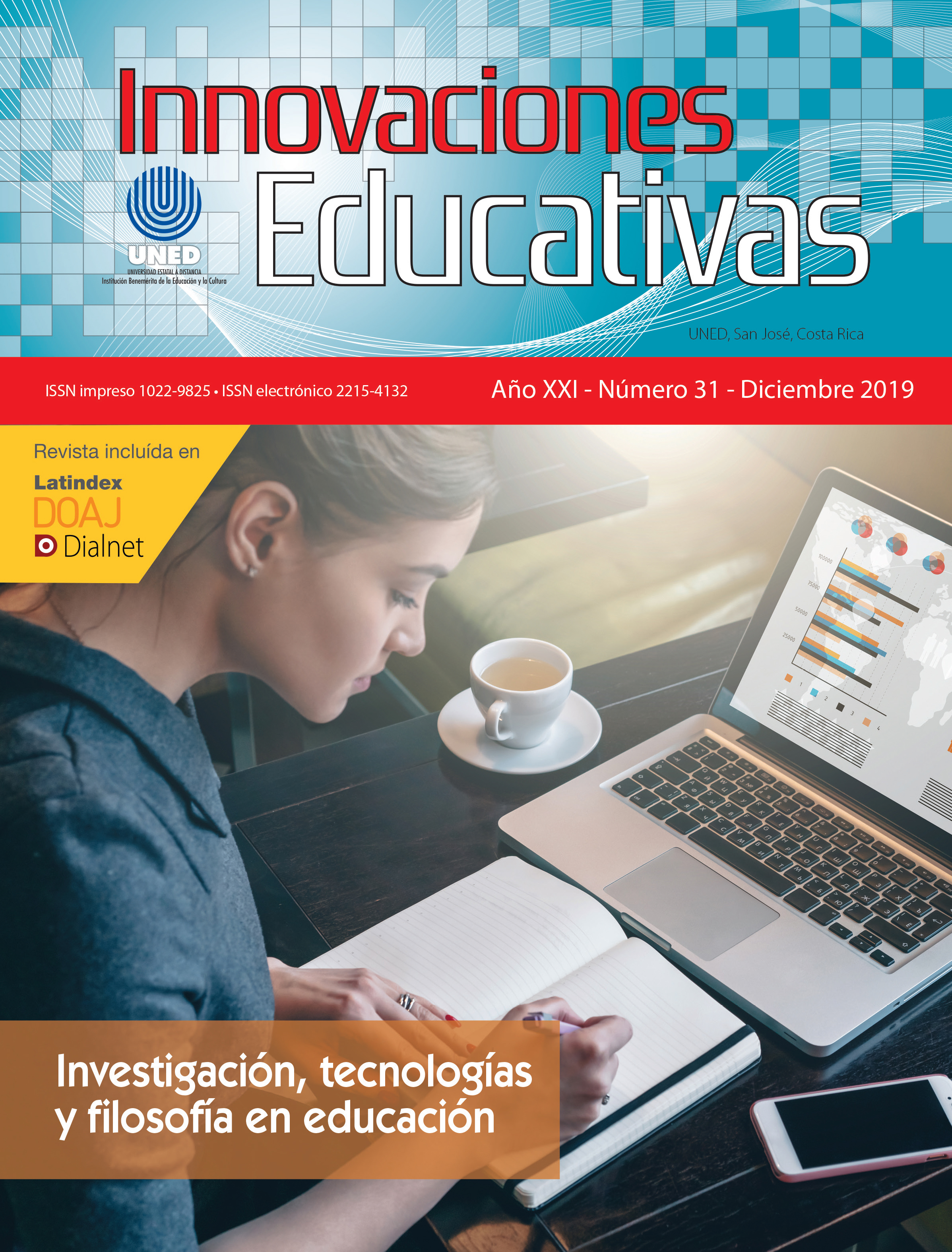Homeschool contributions for children with special educational needs
DOI:
https://doi.org/10.22458/ie.v21i31.2693Keywords:
Primary education, Homeschool, Special educational needs, Pedagogical support, Tutorial, Personalized teachingAbstract
This article shows part of the results of an investigation whose purpose was to expose the main characteristics of a didactic modality that emerges in primary education: homeschool. Therefore, in this text the current situation of this educational modality in Costa Rica is presented in the first instance, how it is carried out and the type of support it offers in specific cases of children with special educational needs. The data discussed in this article is framed in the qualitative approach and focuses on the study of the experience of two children with special educational needs, who live in the city of San José and who studied more than two years ago under the modality of home school. For this, observations were made in the center where they receive tutorials, both parents and the tutor were interviewed. Among the main conclusions set out is that the modality of homeschool has offered the two minors observed good tools for integral development, in addition to the expected training according to the output profiles of the Study Programs of the Ministry of Public Education. Based on this finding, this discussion is expected to open doors to new studies that deepen the use of this modality for primary education in the country.
References
Bull, A., Brooking, K., & Campbell, R. (2008). Successful home-school partnerships. Report to the Ministry of Education by the New Zealand Council for Educational Research. Wellington: Ministry of Education.
Calzada, M. (2013). El homeschooling crece en España y busca la legalidad. Recuperado de https://fundacionmelior.org/archivado/el-homeschooling-crece-en-espana-y-busca-la-legalidad/
Cook, K., Bennett, K., Lane, J. & Mataras, T. (2013). Beyond the Brick Walls: Homeschooling Students with Special Needs. Physical Disabilities: Education and Related Services, 32(2),98-111, https://doi.org/https://doi.org/10.14434/pders.v32i2.12997
Chirino, S. (2018). Análisis del apoyo pedagógico que se brinda dentro de la modalidad educativa “escuela en casa” a un estudiante de segundo grado y a uno de quinto grado con Necesidades Educativas Especiales, quienes habitan en la provincia de San José y que son atendidos por personas tutoras, sus padres y madres durante el primer semestre del 2018 (Trabajo de Graduación para optar por el grado de Licenciatura en Educación General Básica I y II Ciclos). Universidad Estatal a Distancia, San José, Costa Rica.
Gurdián, A. (2010). El paradigma cualitativo en la investigación socio-educativa. San José: EUCR.
Illich, I. (1973). Deschooling Society. Recuperado de http://www.arvindguptatoys.com/arvindgupta/ DESCHOOLING.pdf
Montessori, M. (1986). La mente absorbente del niño. México: Diana.
Programa Estado de la Nación. (2013). Cuarto Informe Estado de la Educación. San José: Programa Estado de la Nación.
Soberanes, J. & Trejo, L. (2011). Educación escolarizada vs. Educación en Casa. Reflexiones sobre la Sentencia Homeschooling del Tribunal Constitucional Español. Cuestiones Constitucionales, Revista Mexicana de Derecho Constitucional. (25), julio-diciembre, 353-365.
Sotés, M. & Urpí, C. (2012) Homeschooling y escuela flexible, nuevos enfoques. Navarra: Universidad de Navarra.
Valle, J. (2012). Enseñar en casa o en la escuela. La doctrina legal sobre el Homeschooling en España. Revista Perfiles Educativos, XXXIV(138), 167-182.
Verdugo, M. (1995). Personas con discapacidad. Madrid: Siglo XXI.
Villarroel, P. (2012). La construcción del conocimiento en la primera infancia. Sophia. Colección de Filosofía de la Educación. (13), 75-89.



